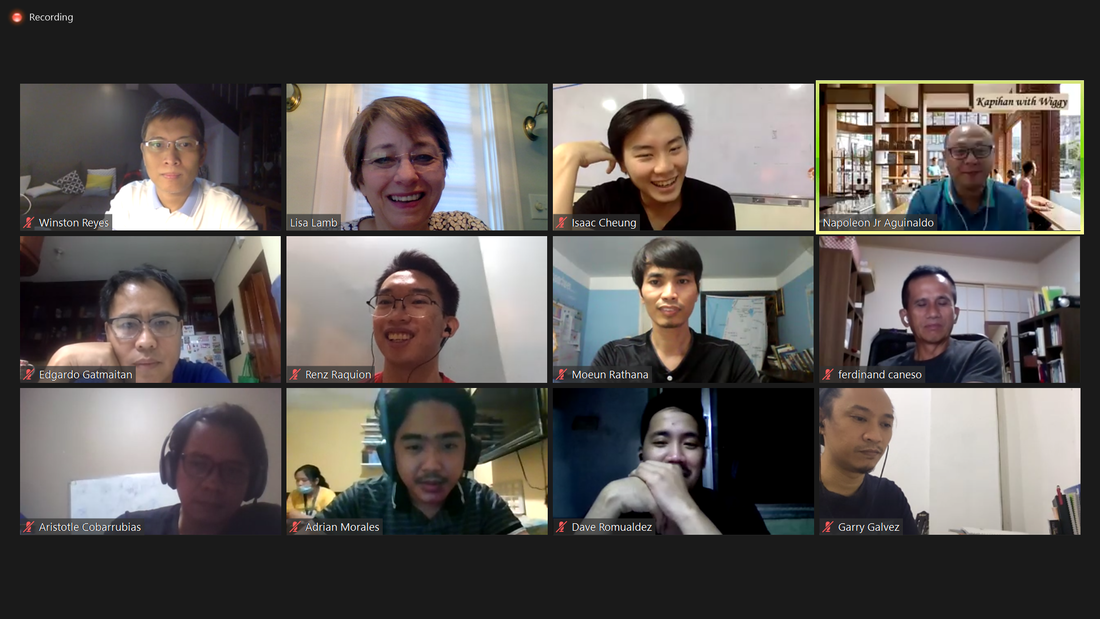|
Adventures in Online Cross Cultural Teaching Part 2
I thoroughly enjoyed the Filipino preaching students I taught this summer through the Asian Theological Seminary. A few of them were as eloquent as any students I have ever heard preach. All of them were sharp observers of their own cultures (plural because one student was Cambodian, and one Filipino was pastoring a church in Japan—one of the benefits of the Zoom classroom). They were also astute in their appreciation and critique of preaching in the Philippines, and they related the Scriptures to their contexts in striking ways. At the end of our second session, after I had lectured on the purposes of the sermon as it has been conceived by the church through the centuries, I asked them to name some characteristics of preaching in the Philippines. Renz said, “Our preaching is halo halo--and we love it like that.” They all smiled in agreement, but this professor needed some translation! Halo halo, it turns out, is a favorite Filipino dessert made of a mixture of colorful flavors of ice cream, various fruits, and other toppings. It looks like the above appetizing image. This was Renz’s way of saying that sermons in the Philippines can seem to meander a bit, moving in and out of story and more didactic modes, but as a whole the various elements form something delicious and a pleasure to hear. On a heavier note, they did not shy away from bringing in the sorrows of their nation, relating themes in Scripture to those struggles. For example, to illustrate the vulnerability of the disciples on the sea in the storm, a student shared about the vulnerability felt by Overseas Filipino Workers, particularly women, who often find themselves at the mercy of cruel and abusive employers in parts of the Middle East and elsewhere. In 2019 there were 2.2 million Filipinos working abroad, as this report shows: https://psa.gov.ph/statistics/survey/labor-force/sof-index Another student, in a powerful sermon on Psalm 88 and the practice of lament, related it to the Filipino practice of tampo, a Filipino word which roughly translates to sulking, withdrawing, and pouting. He then made this excellent point: “The language of Tampo or sulking, which is present in laments, is reserved for those who we share a close relationship with. We don't sulk against the mailman, we do Tampo to the people who are close to our hearts.” He went on to say that the psalms of lament show us prayerful engagement with God through the honest articulation of our struggles. At one point or another they all spoke poignantly of the toll the Coronavirus and the nation’s strict quarantine is having on their economy. One student was recovering from it, and one had many ill family members. They regularly commented that the course itself was good for them, both as it allowed them to see partners in ministry they had not seen in person in physical classrooms for a long time, and because it stretched them to proclaim the goodness of God into painful circumstances. It was a privilege to teach this gifted group of emerging preachers (yes, all men—not typical for the seminary, just how enrollment happened this summer for some reason), and an education for me, as well. Now to find some halo halo here in Los Angeles—it does indeed look delicious!
1 Comment
Wendy Gabelman
8/25/2020 02:00:58 pm
Thank you for sharing your reflections, Lisa.
Reply
Leave a Reply. |
Archives
April 2024
AuthorRich and Lisa Lamb Categories |


 RSS Feed
RSS Feed